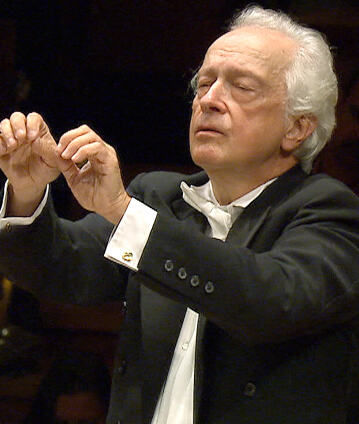Interview
Antoni Wit en conversation avec Krzysztof Polonek Antoni Wit dirige la « Passion selon Saint Luc » de Penderecki

Krzysztof Penderecki est, plus que tout autre compositeur de la seconde moitié du XXe siècle, synonyme de fusion entre modernité et expressivité. Sous cet angle, la Passion selon saint Luc est une œuvre clé qui a largement contribué à sa renommée,. Elle est ici dirigée par Antoni Wit, un élève du compositeur.
Berliner Philharmoniker
Antoni Wit
Christiane Libor
Jarosław Bręk
Stephan Klemm
Daniel Olbrychski
© 2013 Berlin Phil Media GmbH
Interviews liées au concert
Artistes
Nos suggestions
- Les « Quatre Saisons » de Vivaldi avec les Berliner Barock Solisten
- Santtu-Matias Rouvali et Alice Sara Ott
- Une soirée Sibelius avec Simon Rattle et Leonidas Kavakos
- Kirill Petrenko dirige la Sixième de Mahler
- L’Orchestre fédéral des Jeunes et le Ballet fédéral des Jeunes dans Ravel et Strauss
- Claudio Abbado dirige un gala Beethoven pour la Saint-Sylvestre 1991